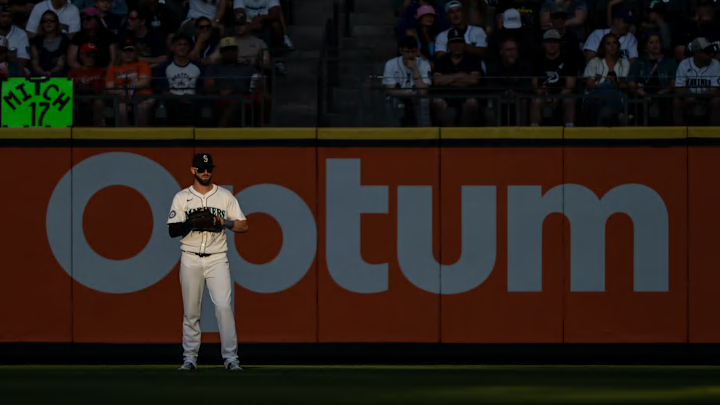When people think about roster changes, additions usually take center stage. Everyone wants to know what new faces will have a positive impact on their favorite team but with finite spots available, each addition will require a corresponding subtraction. The Mariners haven't had the results they were hoping for at the beginning of the season and around the trade deadline so further modifications are inevitable. Additionally, some players might also leave of their own volition to pursue brighter pastures in free agency or even retirement.
3. OF Mitch Haniger
The Mitch Haniger contract has been a failed experiment thus far. After signing a three-year, $43.5 million with the Giants, he had just a .631 OPS over 229 plate appearances, dramatically hampered by a fractured right forearm. After he returned to Seattle in the trade to bring Robbie Ray to San Francisco, it was hoped that he would return to being a healthy, productive hitter. His .625 OPS and 84 OPS+ demonstrate how inaccurate that hypothesis ended up being. His defense is around average, currently sitting at -1 Defensive Runs Saved but his fielding range has been severely hampered by his age as shown by his -5 Outs Above Average.
To make matters worse, he has a player option for 2025 which will pay $15.5 million, potentially making him one of the higher-paid members of the team while likely being one of the least productive. While it's doubtful anyone would be willing to trade for Haniger at this point in his career, the Mariners should do whatever they can to get him off their books or at the very least, out of the lineup. If designated for assignment, he'd either be picked up by a new team, outrighted to the minors, or released. Because of his service time, he can also refuse his assignment and elect free agency if he so chooses.
Whatever the path, clearing room in the outfield would be a big boost to the competitiveness of the Seattle squad. With great depth that includes Luke Raley, Victor Robles, and Randy Arozarena, the team would be putting themselves at a disadvantage by giving at-bats to a hitter who's performing below-league average on both sides.
